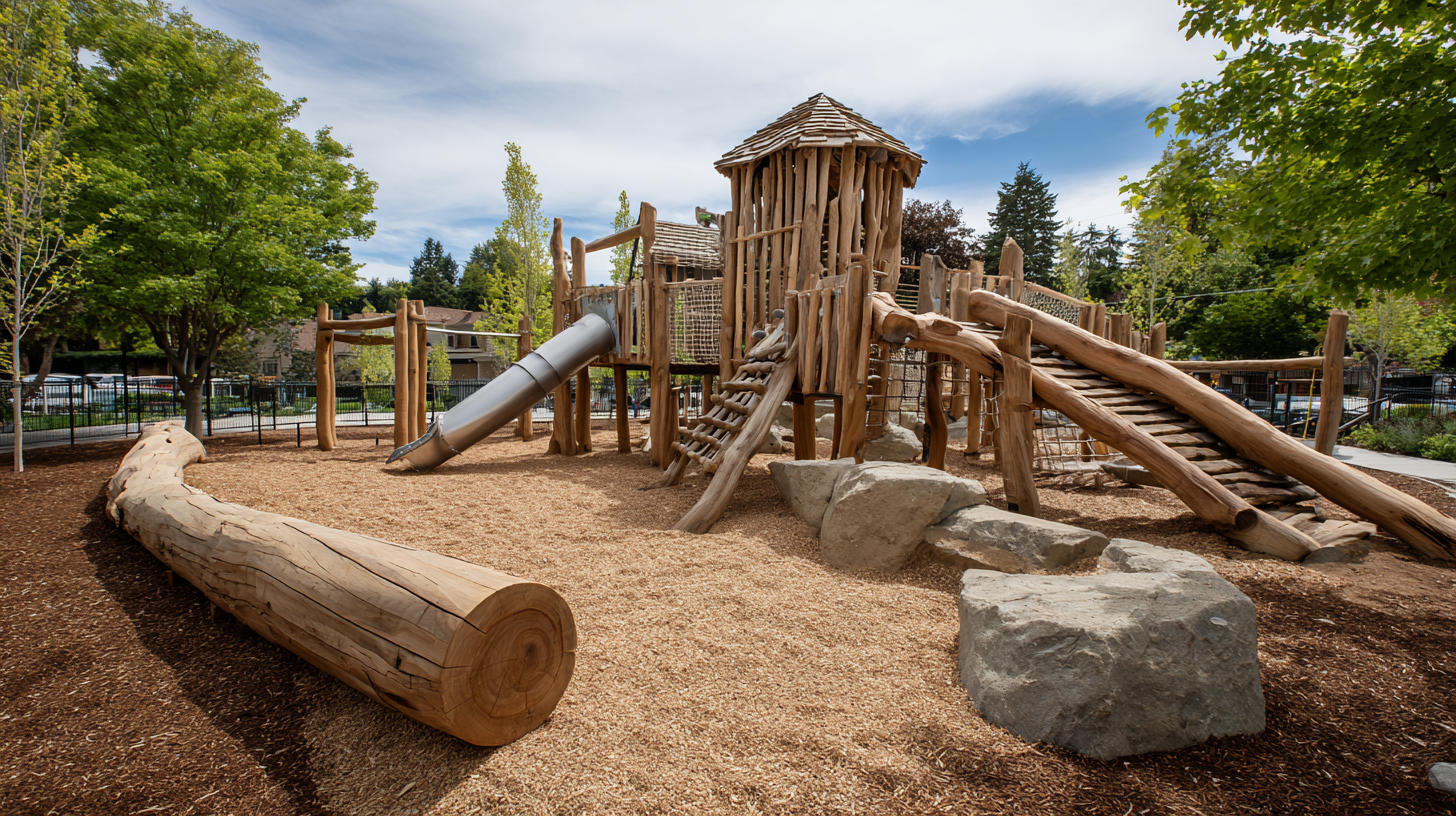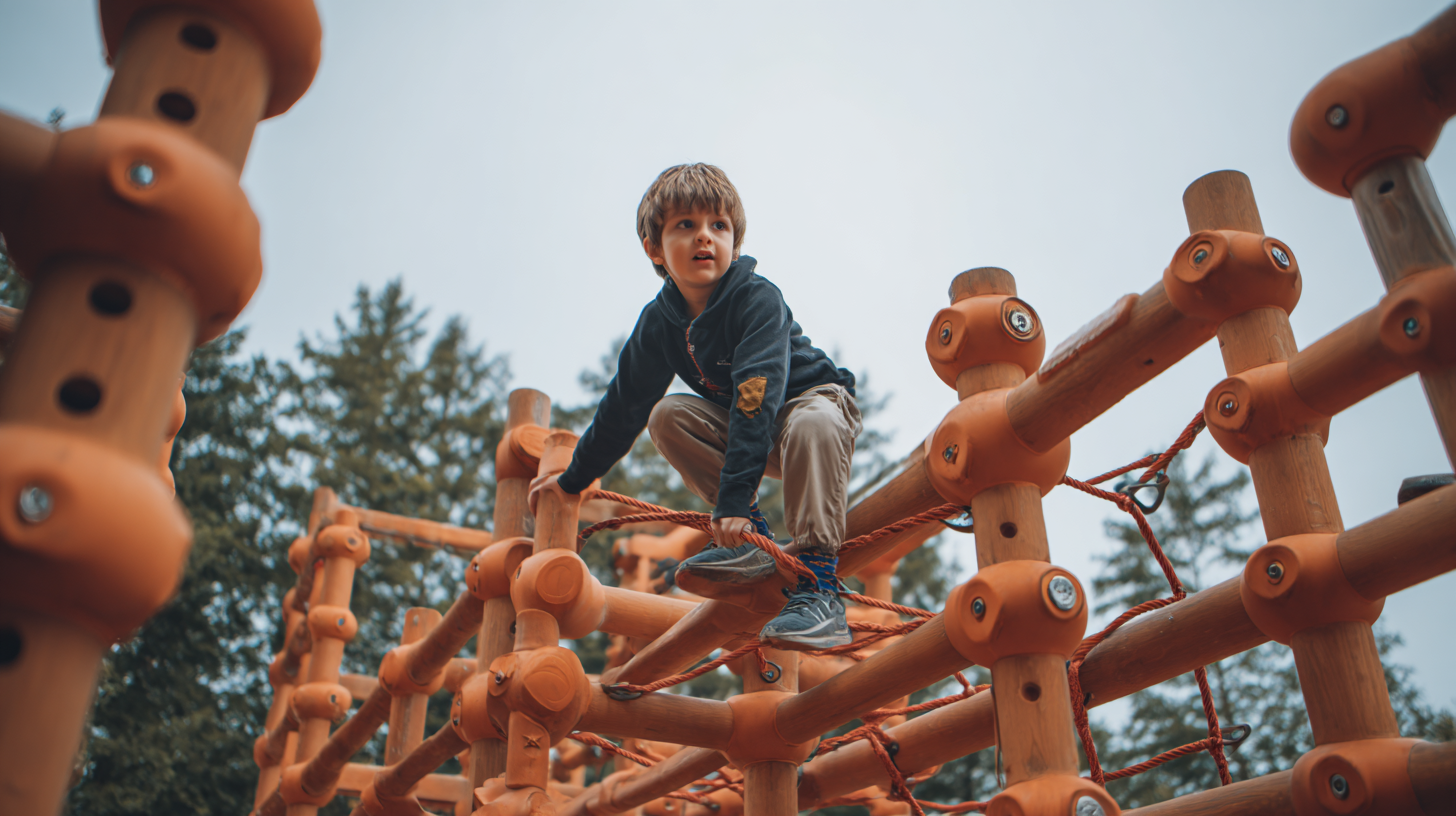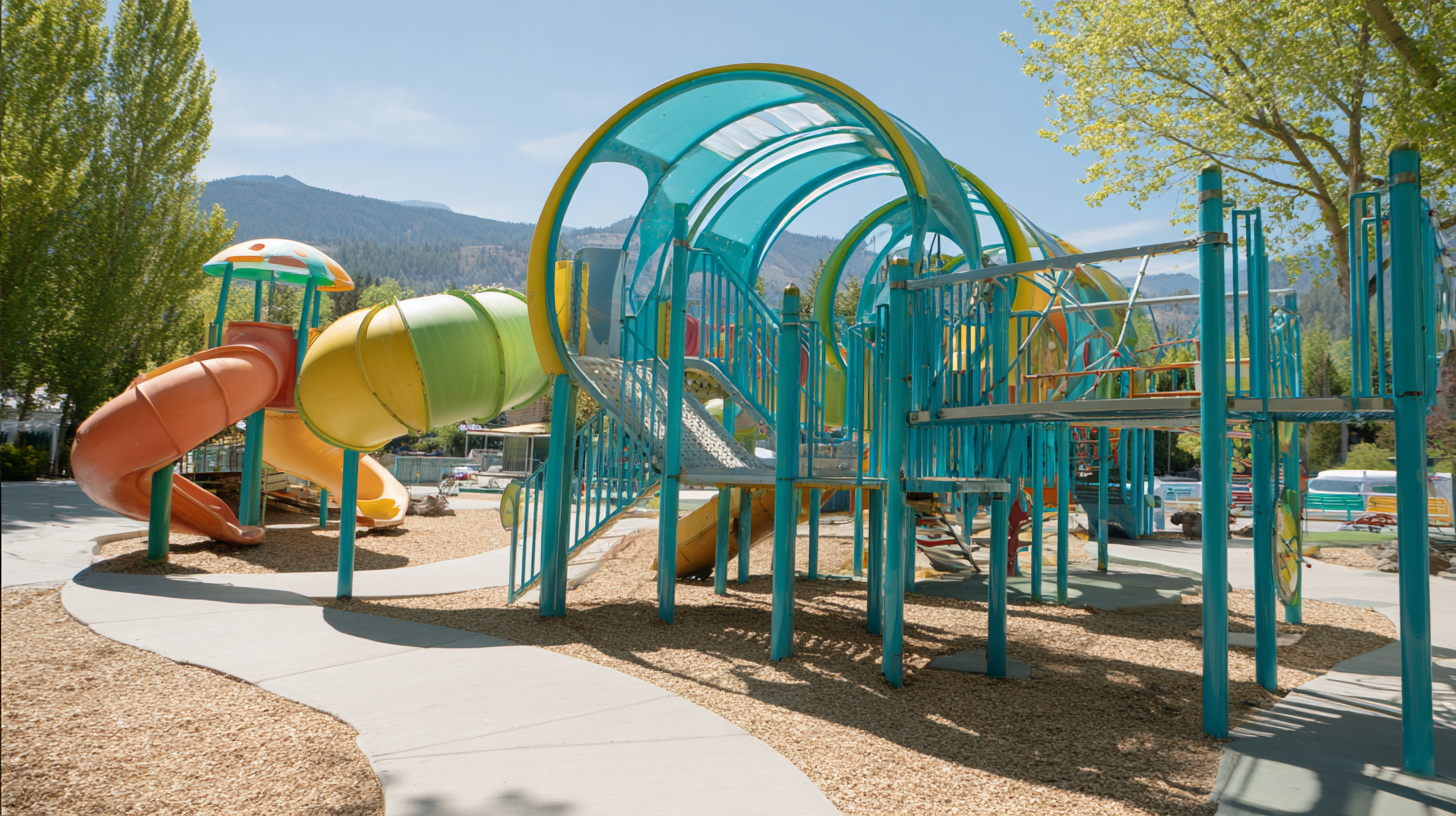 +86-13901441113
+86-13901441113




In recent years, the demand for outdoor play spaces has surged, with the global playground equipment market expected to reach USD 3.5 billion by 2025, according to industry reports. As traditional top playground equipment often dominates these spaces, many communities are now exploring unique alternatives that provide children with not only enjoyment but also developmental benefits.

Innovative structures such as nature play areas, sensory gardens, and obstacle courses are gaining traction, offering diverse experiences that stimulate creativity, physical activity, and social interaction. This ultimate guide delves into these exciting alternatives, encouraging parents, educators, and community planners to rethink their approach to outdoor fun and to consider how these unconventional options can foster a more inclusive and invigorating play environment for children of all ages.
In recent years, there has been a growing trend towards incorporating natural play structures into outdoor spaces, reflecting a shift in how we envision children's playtime. According to a study by the Outdoor Foundation, approximately 79% of children prefer playing in natural environments over traditional playgrounds. This preference underscores the importance of integrating innovative, eco-friendly play structures that encourage exploration and creativity.
Natural play structures, such as logs, boulders, and earth mounds, not only offer a unique play experience but also promote physical activity and cognitive development. Research from the American Academy of Pediatrics indicates that engaging with nature supports children's social skills and self-regulation. For instance, children who played on natural landscapes exhibited a 68% increase in cooperative play compared to those on standard playgrounds. This highlights the potential of nature-based designs to foster a deeper connection to the environment while providing enriching outdoor adventures that inspire imaginative play.
| Play Structure Type | Material | Age Group | Key Features | Benefits |
|---|---|---|---|---|
| Natural Climbing Structures | Wood | 3-12 years | Boulders, Ropes, Logs | Promotes climbing skills, strength, and coordination |
| Treehouse Play Areas | Recycled Materials | 4-14 years | Slides, Swings, Observation Decks | Encourages imaginative play and social interaction |
| Sand and Water Play Areas | Natural Sand, Water Features | 2-10 years | Digging Tools, Water Channels | Enhances sensory experiences and fine motor skills |
| Natural Obstacle Courses | Logs, Stones, Earth | 5-15 years | Balance Beams, Climbing Walls, Tunnels | Promotes agility, balance, and team play |
| Nature Trails | Natural Surface | All Ages | Signage, Benches, Educational Stations | Encourages exploration and connection with nature |
DIY playground projects are more than just fun; they ignite creativity and foster essential life skills in children. Recent news highlights how a build-it-yourself playground in Kingston has allowed kids to explore their imagination while honing critical thinking and teamwork. According to industry reports, unstructured playtime can improve cognitive abilities by up to 30%, making DIY projects an excellent way to engage children’s minds.
One standout project includes using simple materials to create imaginative structures that can take on many forms, encouraging cooperative play. As children collaborate on building their playground, they learn patience and communication skills critical for their development. The interactive nature of these projects not only supports creativity but also enhances social skills, as kids negotiate roles and responsibilities, ultimately leading to stronger teamwork. Reports from child development specialists emphasize the importance of these interactive experiences in shaping resilient and adaptable individuals. By embracing DIY playgrounds, we provide platforms where the only limit is a child’s imagination.
When it comes to outdoor fun, traditional swing sets can feel quite limiting. However, unconventional swing alternatives, such as hammocks and zip lines, offer exciting alternatives that can engage children's creativity and physical abilities. According to a report by the Outdoor Foundation, play equipment that encourages unique forms of play helps improve children’s social skills and physical fitness, making these alternatives not just fun but beneficial for development.

Tip: Ensure that hammocks are securely anchored to sturdy trees or posts to prevent accidents. Choosing breathable materials will also enhance comfort during warm days.
Zip lines, on the other hand, offer adrenaline-pumping excitement. According to the Association for Challenge Course Technology, zip lines can be an exhilarating way for children to build confidence and coordination. They can be installed in backyards or local parks, allowing children to experience the thrill of flight while nurturing their adventurous spirit.
Tip: When setting up a zip line, it is vital to follow manufacturer guidelines and safety regulations to ensure that the height and distance are appropriate for the age group using the equipment.
When it comes to outdoor play, traditional playground equipment often falls short in providing the adventurous experiences that children crave. This is where alternative climbing solutions come into play. Natural elements like rocks and trees not only offer unique climbing challenges but also enhance children’s physical and cognitive development.
According to a 2022 report by the Outdoor Foundation, 78% of children who engage with nature show improved problem-solving abilities, a significant benefit of climbing on natural structures.

Climbing on rocks or trees encourages risk assessment and fosters creativity as kids navigate these complex environments. Research indicates that exposure to adventurous play can lead to increased confidence; a report by the International Journal of Environmental Research and Public Health found that children who participate in unstructured play are 30% more likely to exhibit self-confidence and resilience. Beyond the physical benefits, such engaging setups can strengthen social bonds, as children collaborate and challenge one another in their explorations. As we reimagine outdoor spaces, integrating these adventurous solutions can provide not only fun but essential developmental advantages.
Water play is an essential component of outdoor fun, tapping into children's innate curiosity while providing sensory experiences that traditional playground equipment often lacks. According to a report by the National Association for Sport and Physical Education, engaging in water play can significantly enhance physical development and social skills, as kids learn to collaborate and communicate while exploring this dynamic environment. Activities such as splash pads, water tables, and DIY water slides can be exciting and offer countless hours of entertainment without the need for conventional structures.
Tip: Create a DIY water obstacle course using household items like inflatable pools, hula hoops, and buckets. This not only promotes teamwork as children navigate the course together but also encourages creativity and problem-solving.
Incorporating nature into water play can further enrich the experience. For example, nature-based water play allows kids to interact with the environment, fostering a sense of connection and respect for nature. According to the Children and Nature Network, outdoor water activities can improve mood and reduce stress for children, providing a holistic approach to play that goes beyond the confines of traditional playgrounds.
Tip: Organize a natural water scavenger hunt where kids can search for rocks, leaves, and bugs while engaging in water play. This approach not only makes the activity educational but also strengthens their observational skills and appreciation for the outdoors.